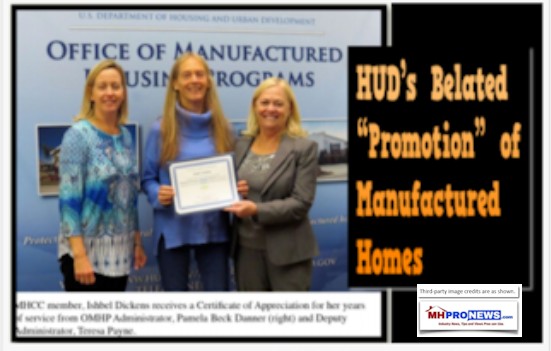
“As I have informed you all on various occasions, it is also my goal to improve internal HUD recognition and understanding of the Federal manufactured housing program,” said Pamela Beck Danner, JD.
Danner, is the career administrator for the Office of Manufactured Housing Programs (OMHP), a department “buried” at HUD – per a source connected to the Manufactured Housing Institute (MHI) – in HUD’s risk management program.
“That pretty much sums up how HUD sees manufactured housing,” says that source.
Danner’s statement, in the OMHP’s ManuFACTured Housing newsletter, continued, “As a major step in meeting this goal, on Tuesday, August 30th [2016], I was given the opportunity to brief Secretary Castro on the importance of manufactured housing in providing affordable, quality, durable and safe homes nationwide and the role of the Federal manufactured housing program in accomplishing this mission.”

“Wow,” said the MHI source, tongue in check, “over two years into her job, and a meeting with HUD Secretary Castro to brief him on manufactured housing was described as a “major step.” Seriously?”
While at least that source with MHI is willing, off the record, to share comments that provide some wit that points to the want of actual accomplishments by HUD toward advancing what the Manufactured Housing Improvement Act of 2000 (MHIA 2000) requires, the Arlington, VA based association itself has touted the latest “accomplishment” – shown below – at HUD by Danner.
The pro-HUD, MHI release to state associations, per a source to MHProNews, read as follows:
“HUD EMPHASIZES IMPORTANCE OF INDUSTRY WITH P.R. EFFORT
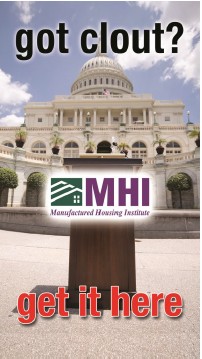
In an effort to raise awareness within the Department of Housing and Urban Development (HUD) of how the manufactured housing industry impacts homeownership and employment nationwide, the Office of Manufactured Housing Programs recently began broadcasting digital ads internally throughout HUD’s Headquarters in Washington D.C. and to field offices across the country through the Department’s intranet web pages.
The ads highlighted specific facts about the importance of the industry, including: the number of jobs and economic impact created by the construction, sale and installation of manufactured homes; the importance of manufactured homes as housing stock in rural communities; and the unique nature of factory-built homes as affordable, nonsubsidized housing for working families.”
That pro-HUD message by MHI stands in stark contrast to what the association asked industry members to state in their comments on Executive Order 13777. MHI’s comments letter and analysis is linked here.
In the EO 13777 MHI comments letter. they take a ‘tough talking’ stand against HUD’s regulatory overreaches. Yet, in the promotional piece above, sent to state association executives, MHI encouraged the pro-HUD message above to be shared with industry members.
“What’s up with that?” asked MHProNews from an association leader?
“Hell if I know,” that state association source leader said. That source stated they went ahead and sent that pro-HUD promo out, but had no idea of the rationale behind the alleged MHI request.
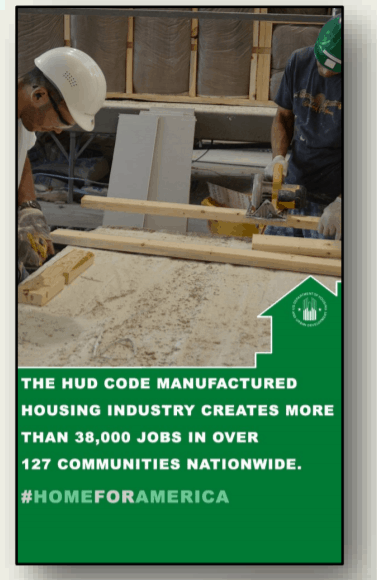
Industry Professionals React
Industry professionals advised MHProNews of the MHI message above, and some expressed concerns on the record.

“Have you heard that HUD has begun emailing its employees about the benefits of our homes? JUST A COUPLE OF DECADES BEHIND THE TIME, THAT’S ALL!” (caps in the original), said Bob Crawford, president of award-winning retailer Dick Moore Housing.
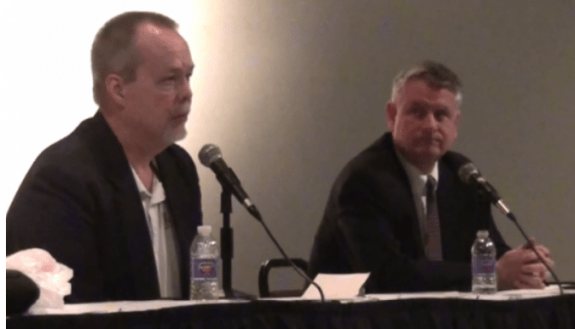
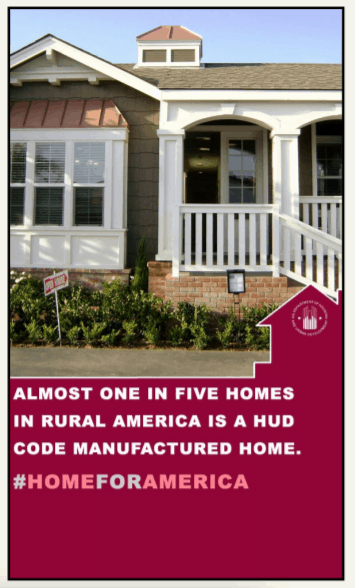
Crawford has expressed his concerns before, calling for a new post-production association.
His most recent comment continued on that theme, “Had we a robust post-production representative entity (that aggressively represented the ENTIRE industry) ten-to-fifteen years ago, it’s easy to imagine the positive attention our industry could have enjoyed (and benefited from)!“
Crawford rhetorically asked, “Do you think this sudden change is a result of the president’s exec order 13777 asking for comments on ways to improve the HUD Code program? You think they are getting their ears burnt!?!? If so, it’s about time!”
Crawford agreed to share these thoughts, on the record, which drew to a close with this, “Again, if we had had some type of ‘heat’ applied to the HUD seats 10 years ago, I would opine that we would not be in the situation of affordable housing shortages and a decreasing independent retailer distribution network that we face today!”
The Word from Washington, D.C.
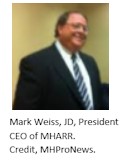
“The problem, though, is that such posturing, without resolving the core program deficiencies that are harming consumers and the industry, will accomplish little or nothing,” Weiss said.
He added, “What is needed, is a major shake-up of the HUD program, including the replacement of its “old guard” bureaucrats, the re-assignment and replacement of its administrator, and the introduction of fresh blood and new ideas to change the course, trajectory and dynamics of the program to one that truly advances and facilitates the availability and utilization of affordable manufactured housing, as the law requires.”
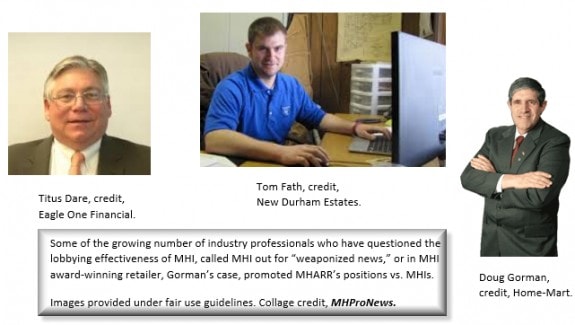
Which Posture is MHI’s Actual Position?
If HUD’s Danner is now feeling the “heat” – using Crawford’s word – and thus is beginning to advise within their vast bureaucracy, to implement a promise she made some 3 years ago, early on in her tenure at HUD, what would happen if she were to retain her position through the influence of MHI?
What has MHI asked for of HUD Secretary Carson’s staff in their reported closed-door meeting?
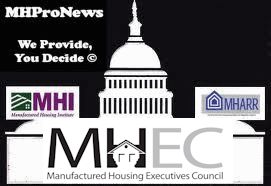
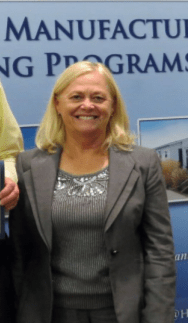
Sources among state association executives tell MHProNews that there are pro-Danner voices in MHEC, not just MHI.
But other sources have said that the MHI policy makes no sense. “It’s like there’s a split personality with respect to HUD and Danner at MHI,” one source stated.
Because the power structure of state associations and MHI often have similarities, even when a state executive disagrees with a policy, that doesn’t mean they are free to act on their viewpoint.
As a larger MHI/NCC member community operator told MHProNews in a phone call on Friday, it’s typical for associations to respond more to their larger members than to their smaller ones.
That reality led another award-winning community operator some weeks ago to tell MHProNews that MHI’s largest members have “figured out how to get the smaller members to pay for what they want done.”
That included, per another source, that MHI’s public relations person is allegedly doing work for certain member companies, apparently at MHI’s – meaning their broad membership’s – expense.

“They can’t have it both ways,” said a non-MHI member that does business with several MHI companies. “They either support what Danner and HUD are doing, or they don’t. The fact that when you look closely, they are sending mixed messages, strongly suggests they are misleading smaller members. After all, it’s obvious that the largest members know exactly what is going on, and why.”
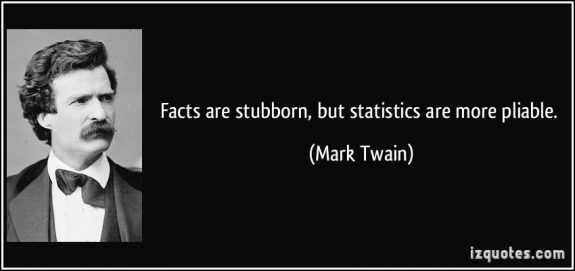
While the comments period for the Trump Administration Executive Order #13777 as it applies to HUD is now closed, the statements of MHI, MHARR, and some industry members – including this writer – are posted on the Daily Business News story, linked here. They reflect the disparity between what MHI is saying in their pro-HUD message above, to what they wanted industry members to say in their executive order.
A member-company middle-manager shown the two sets of information coming from MHI about HUD reacted by asking, “Can’t MHI’s PR people keep their own messages consistent?”
“What’s Needed”
As MHARR’s Weiss said, “What is needed, is a major shake-up of the HUD program, including the replacement of its “old guard” bureaucrats, the re-assignment and replacement of its administrator, and the introduction of fresh blood…”
Weiss has taken a strong stand in calling for the full implementation of the Manufactured Housing Improvement Act of 2000 (MHIA 2000), which he says could return new home industry shipments into the hundreds of thousands of homes a year.
“We Provide, You Decide.” © ## (News, Analysis.)
(Publisher’s note: MHI is routinely asked to comment and react to these stories, and they are met with no-comment. As Managing Member of MHProNews and MHLivingNews, L. A. “Tony” Kovach has invited Dick Jennison and/or Lesli Gooch to debate via video – so the industry can see who stands where and why – MHI’s effectiveness and how they’ve approached advocacy. They’ve yet to accept. Why are they ducking these troubling topics?)
(Image credits are as shown above, and when provided by third parties, are shared under fair use guidelines.)


























